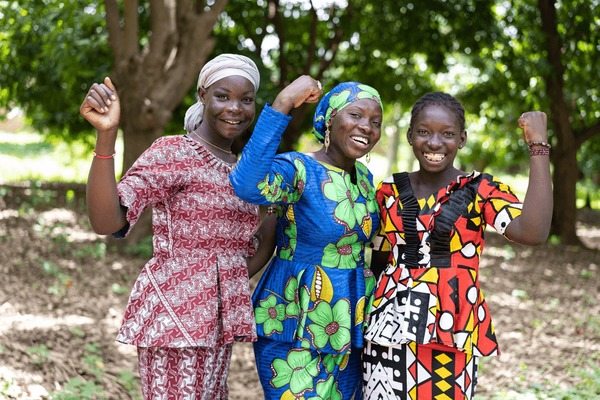Globally, it is estimated that one in every 45 people require humanitarian assistance, the highest level that the world has ever witnessed. Women and children living in these contexts require humanitarian assistance to survive, thrive and achieve their potential as contributing members of a community. In the humanitarian settings in Nigeria, the disruption or absence of critical health services such as antenatal care, skilled attendance at childbirth, essential newborn care, and care for sick children, and routine immunization and care for common childhood illnesses like diarrhea and respiratory infections can be fatal. However, evidence has shown that empowering people with ‘self-care” interventions can improve health services in these settings.
There has been an ongoing efforts by White Ribbon Alliance, Federal Ministry of Health and partners to promote self-care in humanitarian settings such as Borno State Nigeria.
Self-care according to World Health Organization (WHO) is defined as the ability of individuals, families and communities to promote health, prevent disease, maintain health, and cope with illness and disability with or without the support of a health care provider.

Image: African Women in a humanitarian setting
Why should we promote self-care in Humanitarian and Fragile Settings?
Self-care promotion in humanitarian settings in Nigeria can have numerous benefits and effects for individuals and communities affected by crises. Below are some key advantages and impacts:
1. Physical and Mental Well-being: Self-care practices contribute to improved physical and mental health outcomes. By promoting self-care, humanitarian organizations can empower individuals to take control of their health and well-being, leading to reduced stress, improved resilience, and better overall health.
2. Empowerment and Dignity: Encouraging self-care in humanitarian settings promotes a sense of empowerment and dignity among affected populations. It enables individuals to actively participate in their own care, make informed decisions, and regain a sense of control over their lives.
3. Sustainable and Cost-effective: Self-care interventions often utilize existing local resources and knowledge, making them sustainable and cost-effective. By providing individuals with the necessary tools and information, humanitarian organizations can reduce dependence on external aid, thereby promoting long-term resilience and self-sufficiency.
4. Community Building and Social Support: Self-care promotion fosters community engagement and social support networks. It encourages individuals to share their knowledge and skills with others, promoting a sense of solidarity and strengthening social ties within the community.
5. Prevention and Early Intervention: Self-care practices emphasize preventive measures and early intervention. By promoting hygiene practices, health education, and self-assessment, humanitarian organizations can help identify potential health issues at an early stage, leading to prompt action and reducing the severity of illnesses or injuries.
6. Capacity Building: Self-care promotion encourages the development of knowledge and skills within the affected population. By providing education and training, individuals can acquire the necessary competencies to manage their health, care for others, and respond effectively during emergencies.
7. Reduced Burden on Healthcare Systems: When individuals practice self-care, it can alleviate the burden on healthcare systems, especially in resource-limited settings. By adopting self-care practices, individuals can manage minor ailments and engage in self-treatment, freeing up healthcare resources for more critical cases.
8. Psychological Benefits: Self-care activities, such as mindfulness exercises, relaxation techniques, and creative outlets, can have positive psychological effects. They can help individuals cope with trauma, improve emotional well-being, and promote psychological healing and resilience.
9. Improved Health Literacy: Self-care promotion enhances health literacy, enabling individuals to understand health information, make informed decisions, and navigate healthcare systems. This increased knowledge empowers individuals to seek appropriate care, advocate for their health needs, and engage in health promotion and prevention.
10. Long-term Impact: By promoting self-care practices, humanitarian organizations can have a lasting impact beyond the immediate crisis. The skills and knowledge acquired during humanitarian interventions can be carried forward, benefiting individuals and communities long after the emergency has subsided.
Conclusion
Overall, self-care promotion in humanitarian settings offers numerous benefits, including improved physical and mental well-being, empowerment, sustainability, community building, prevention, capacity building, and reduced burden on healthcare systems, psychological benefits, improved health literacy, and long-term impact. These effects contribute to the holistic recovery and resilience of individuals and communities affected by humanitarian crises.
